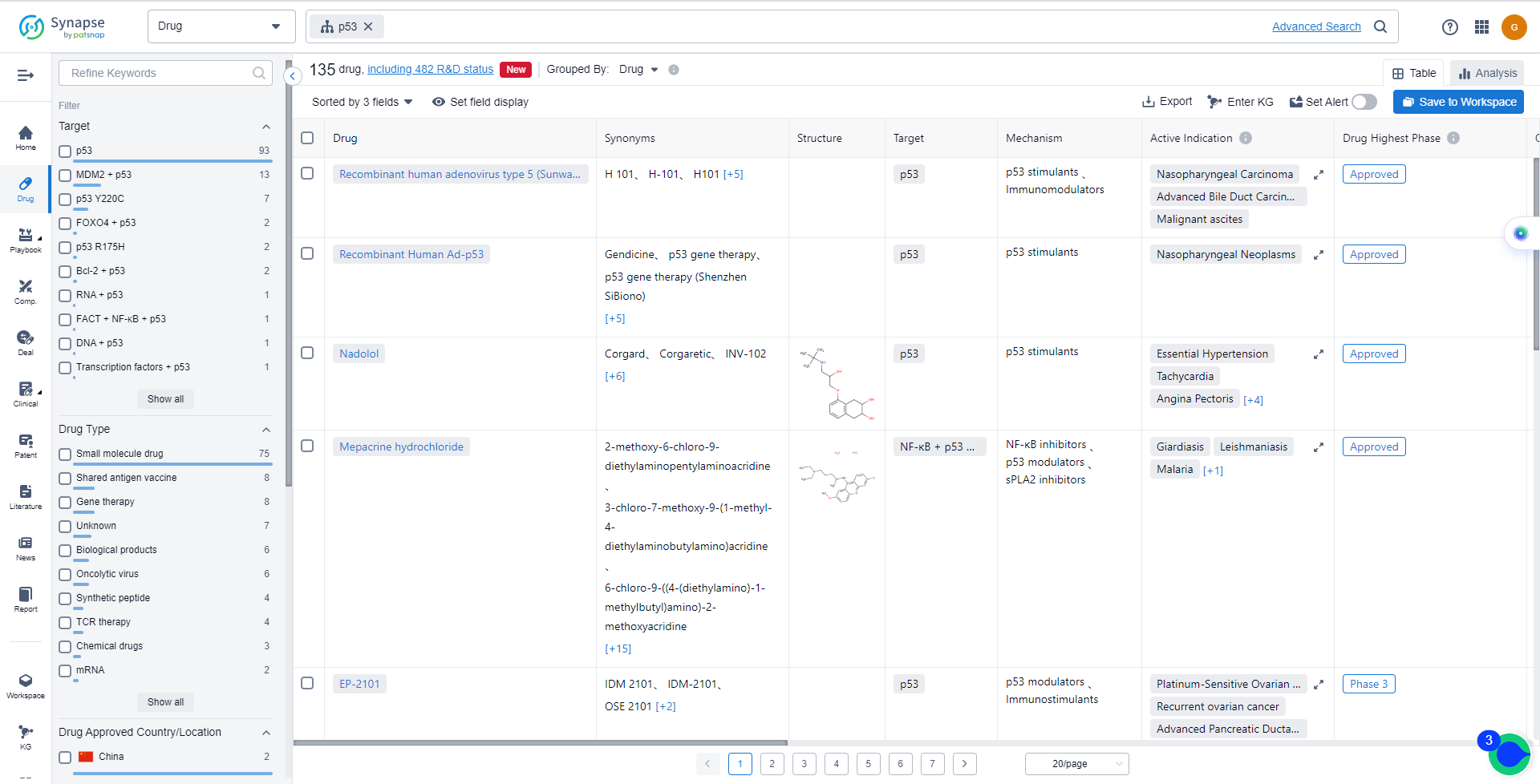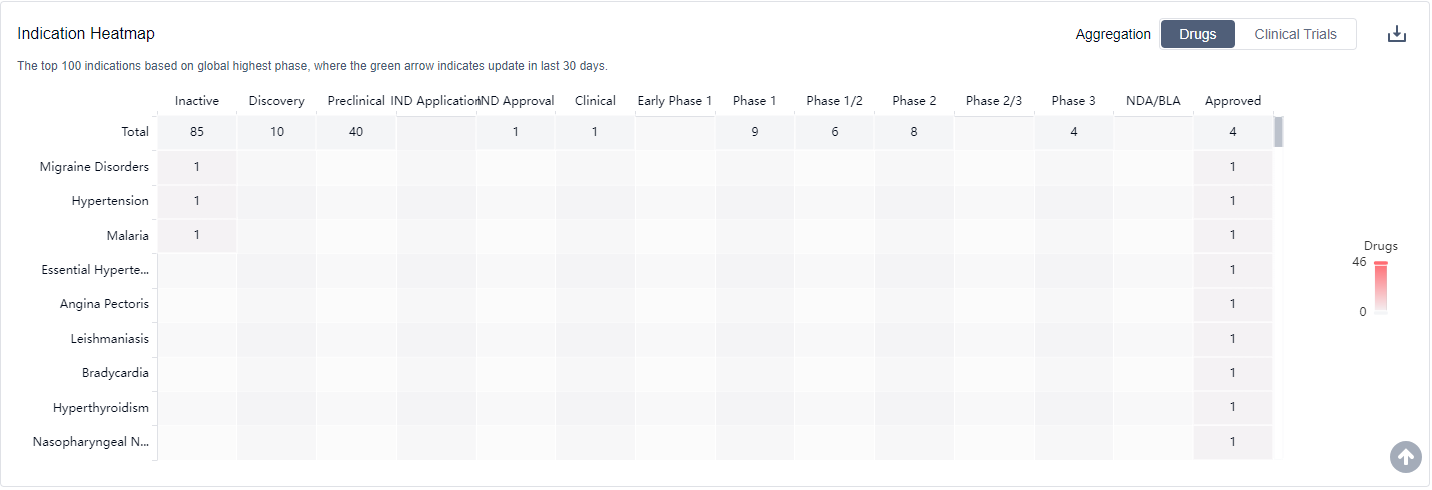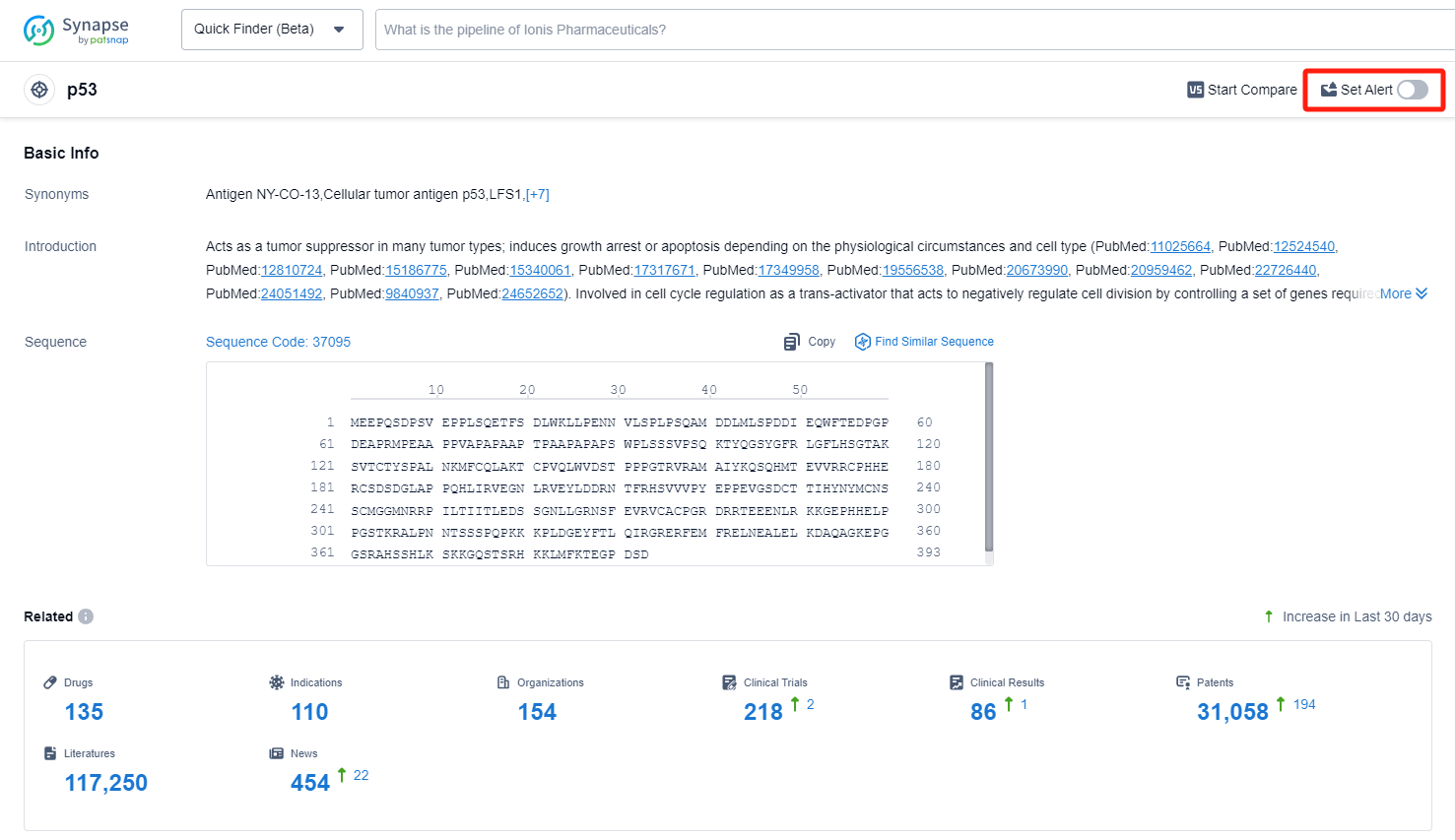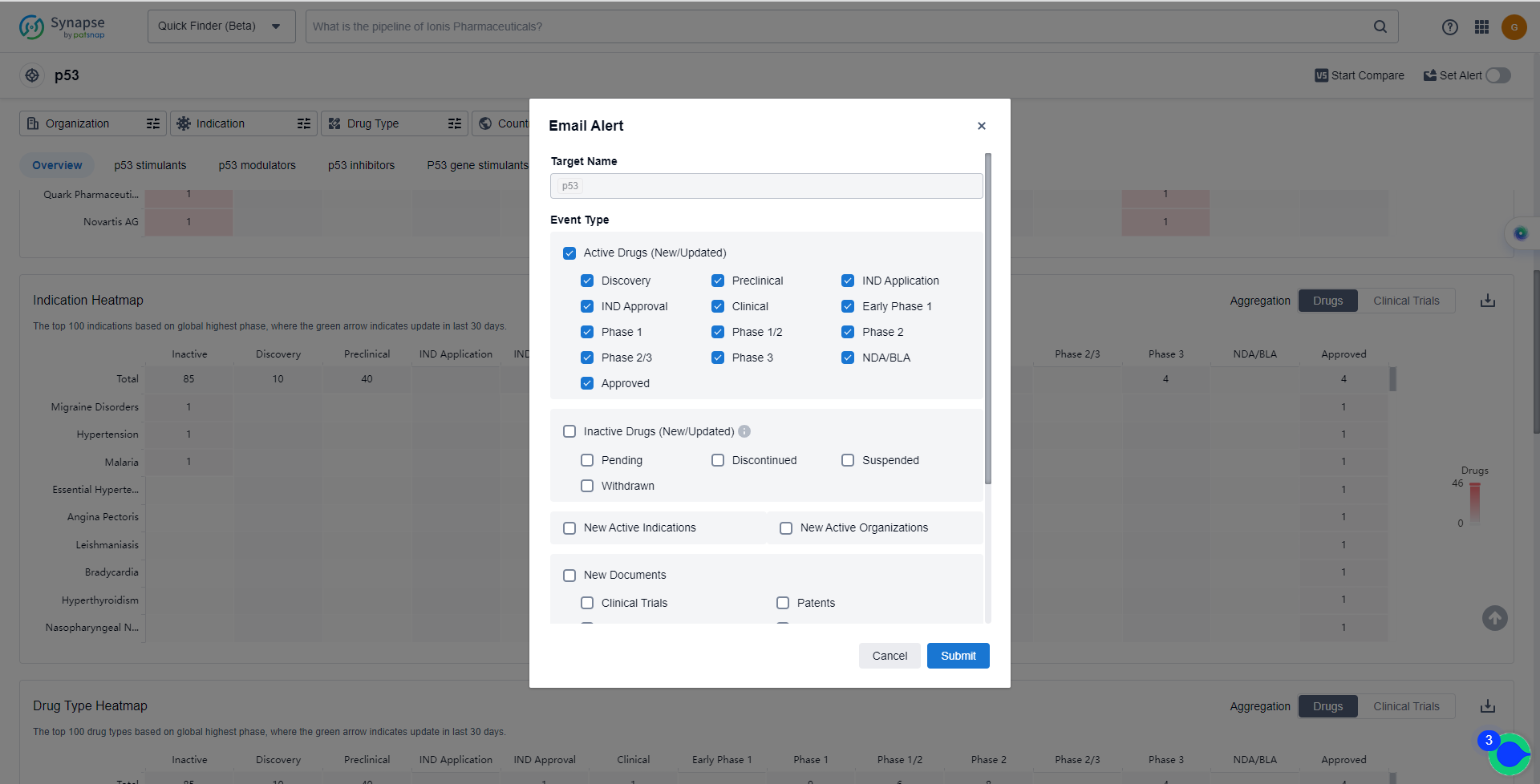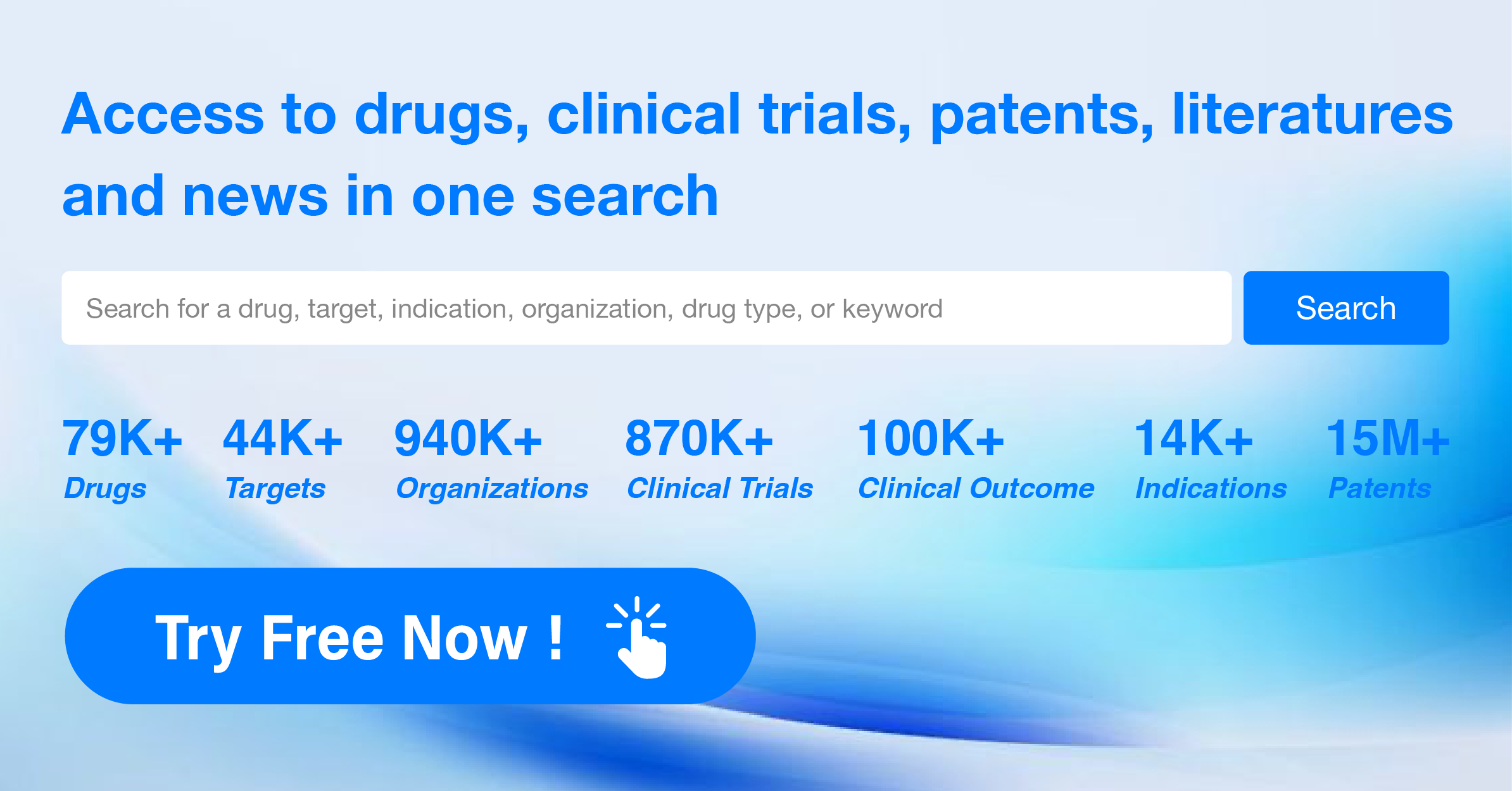What are p53 inhibitors and how do you quickly get the latest development progress?
p53 is a crucial protein that plays a vital role in maintaining the integrity of the human body. It acts as a tumor suppressor by regulating cell division and preventing the formation of cancerous cells. p53 monitors DNA damage and initiates repair mechanisms, halting cell division if the damage is irreparable. Additionally, it promotes programmed cell death (apoptosis) to eliminate cells with severe DNA damage. p53 also regulates various cellular processes, including metabolism, angiogenesis, and immune response. Its significance in preventing cancer and maintaining genomic stability makes p53 an essential protein in the human body.
The analysis of the current competitive landscape and future development of target p53 reveals that multiple companies are actively involved in the development of drugs targeting p53. The highest stage of development is the Approved phase, indicating successful development and approval of drugs for relevant indications. The R&D progress varies among companies, with some conducting research across multiple phases. Indications such as Migraine Disorders, Hypertension, and Malaria have seen approved drugs under the target p53. The drug types progressing most rapidly include Small molecule drugs, Oncolytic viruses, Gene therapy, and Shared antigen vaccines. China, United States, and European Union are among the countries/locations developing fastest under the current target, with China showing significant progress. Overall, the target p53 presents a competitive landscape with diverse R&D activities and potential for future development.
How do they work?
From a biomedical perspective, p53 inhibitors are a type of pharmaceutical compounds or drugs that target and inhibit the function of the p53 protein. The p53 protein is a tumor suppressor protein that plays a crucial role in regulating cell growth and preventing the formation of cancerous cells. However, in certain cases, the p53 protein can become mutated or overactive, leading to abnormal cell growth and the development of cancer.
P53 inhibitors are designed to block or reduce the activity of the p53 protein, with the aim of inhibiting the growth of cancer cells. By inhibiting p53, these inhibitors can potentially disrupt the signaling pathways that promote cell survival and proliferation in cancer cells. This approach is being explored as a potential therapeutic strategy for various types of cancers.
It is important to note that the use of p53 inhibitors in cancer treatment is still under investigation, and their efficacy and safety profiles are being studied in preclinical and clinical trials. These inhibitors may be used alone or in combination with other cancer treatments, such as chemotherapy or radiation therapy, to enhance their effectiveness.
List of p53 Inhibitors
The currently marketed p53 inhibitors include:
- Recombinant human adenovirus type 5 (Sunway Biotech)
- Recombinant Human Ad-p53
- Nadolol
- Mepacrine hydrochloride
- EP-2101
- Eprenetapopt
- Milademetan
- Teprasiran
- Alrizomadlin
- ALVAC-p53(Sanofi Pasteur SA)
For more information, please click on the image below.
What are p53 inhibitors used for?
p53 inhibitors are being explored as a potential therapeutic strategy for various types of cancers. For more information, please click on the image below to log in and search.
How to obtain the latest development progress of p53 inhibitors?
In the Synapse database, you can keep abreast of the latest research and development advances of p53 inhibitors anywhere and anytime, daily or weekly, through the "Set Alert" function. Click on the image below to embark on a brand new journey of drug discovery!
